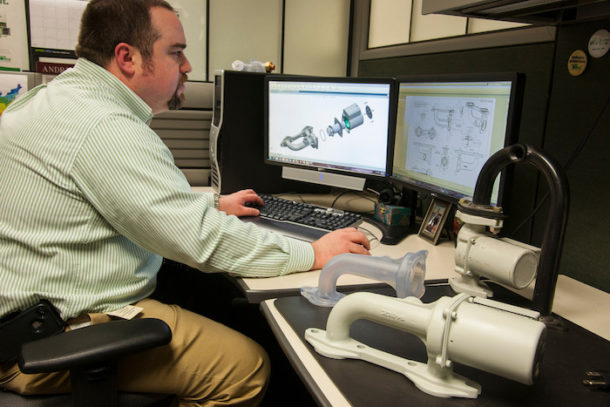Here Are Some Tips on Getting Started
If you have a technical mind and aren’t sure what type of career to pursue, you’re in luck. Technical skills are among the most highly sought-after in today’s workplace.
The king of all technical fields is, of course, engineering. Engineering jobs tend to be among the most stable and profitable out there, and if you can manage to land one, you can be confident that your skills will always be in demand.
If you’re still in high school (or even if you aren’t, but may be looking to switch jobs), talk to a job counselor or start reading up on the field. You might even want to start thinking about engineering specialties before you start out. If you visualize yourself in a particular type of role, you’ll be more likely to stick to the path of getting there.

Types of engineering jobs
The field of engineering is broken up into four major categories, with many more sub-specialties falling underneath them. The four major branches are the following:
Civil engineering
Civil engineers design and oversee infrastructure projects. This includes infrastructure of all sorts: roads, bridges, tunnels, sewage systems, and many other structures.
To become a civil engineer, you will first of all need a bachelor’s degree in the subject. For more advanced positions, a master’s degree or even a PhD may be required. Like all engineering specialties, strong math skills are essential. However, civil engineers are also often creative, as well. There is often an important design element to good infrastructure project, and the ability to think creatively in terms of space and layout is definitely an added advantage.
Mechanical engineering
A related field is mechanical engineering. Mechanical engineers work with machines of different sorts – engines, generators, even air conditioning and heating units. They work on all aspects of development, from design to manufacturing to implementation.
To become a mechanical engineer, you’ll need to complete coursework in materials science, design and automation, and engineering analysis, among other things.
Mechanical engineers become involved in a wide array of spheres, including aerospace, nanotechnology, ergonomics, and other fascinating areas. If you think this kind of career might be right for you, you should read up on the possibilities. There are even remote positions available on Jooble if you’re looking to work from home.
Chemical engineering
Another major direction in the field is chemical engineering. Chemical engineers work with raw materials of different sorts to produce chemicals, drugs, specialty foods, and many other kinds of products.
In order to become a chemical engineer, you will need to have a degree in the subject. Coursework includes such subjects as thermodynamics, petroleum engineering, industrial chemistry, and various other courses related to chemical processes.
If you have a mind for chemistry and want to take your career in a profitable direction, chemical engineering could be a great path for you.
Electrical engineering
Electrical engineers, as the name suggests, work with electricity. They work with electrical equipment of different sorts, including electrical motors, appliances, and other types of machinery. Even large-scale power grids fall under the realm of electrical engineering.
Coursework for a degree in the subject includes the study of electrical circuits, electromagnetic fields and waves, electronics, and other related subjects.
If you were the kind of kid that liked to fiddle with electronics and felt that you had a natural inclination for making them better, this could be the career path for you.
Once you’ve got the basics, look further
Even though you won’t need to declare a specialty in the first year of your degree program, it won’t hurt to read up on all the different things that engineers do. You might find yourself inspired by a particular subject and decide right away to move in that direction. Or you may be fascinated by different options and become excited to see where your initial studies will take you.
Engineers come in many different forms. You might love the water and decide that marine engineering is for you. You may have a knack for computers and decide to become a software engineer. The possibilities are manifold, and regardless of the direction you pursue, you’ll know that you’re entering one of the most prestigious and lucrative fields out there.
So, start reading up on the possibilities. Your dream job awaits!




Join the conversation: